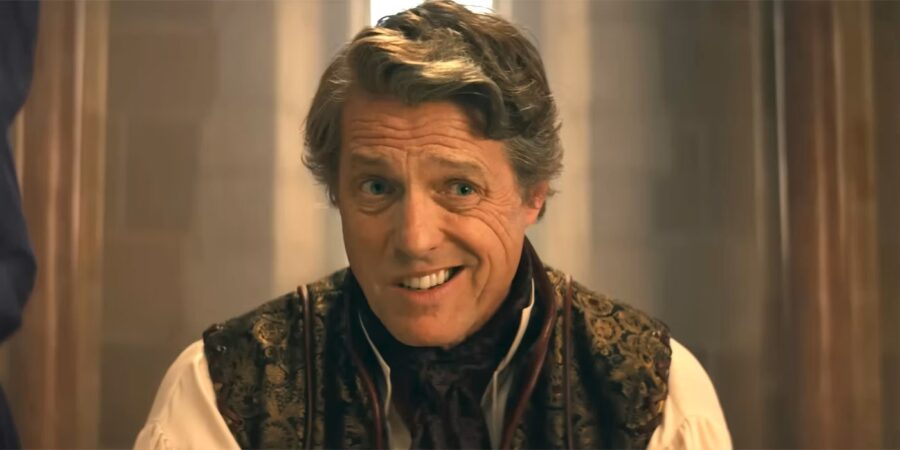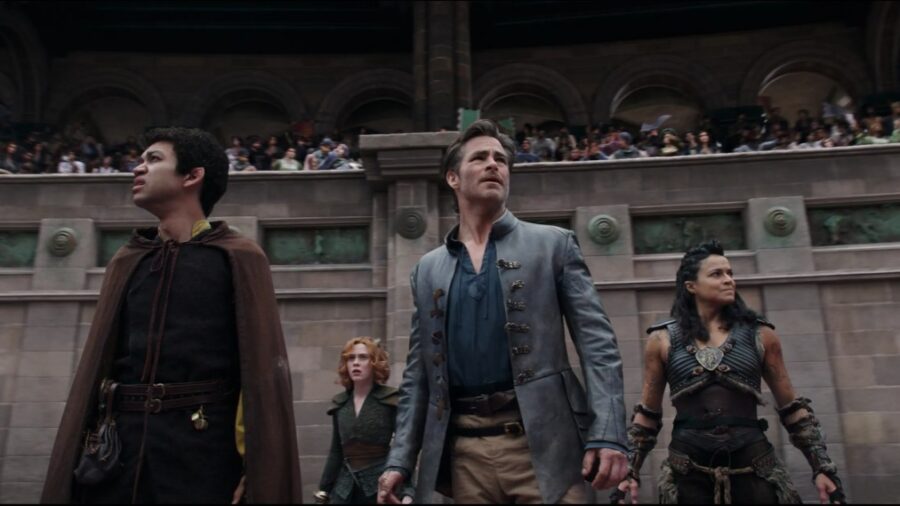Dungeons & Dragons Will Never Make A Good Movie, Here’s Why
Dungeons & Dragons will never make a good movie because the change in medium removes the player interaction that makes the property unique.

Dungeons & Dragons: Honor Among Thieves will soon be arriving in theaters, making it the latest attempt to turn the most famous tabletop roleplaying game in history into a viable film franchise. The influence of Dungeons & Dragons can be felt everywhere in pop culture, from the monsters of Stranger Things to the existence of Warhammer 40,000 to the greatest episode of Community to ever be banned from streaming, so it makes sense that executives somewhere would want it to be its own film property. However, Dungeons & Dragons will never be able to make a good movie for a simple reason: the game is meant to be played, not watched.
The original RPG was originally designed in the early 1970s by Gary Gygax and Dave Arneson, who basically took existing miniature war game structures and put a thick coat of Lord of the Rings, Cthulhu, and Conan the Barbarian all over it. All of its elements existed in one form or another, but Dungeons & Dragons took a giant leap forward by turning fans into participants. Sure, reading about elves and dragons and Frodos is well and good, but the game did something special by turning its players into the protagonists rather than simply following along with them.

A Dungeons & Dragons movie reverses that dynamic. The appeal of a campaign is that players feel engaged with the identities of their constructed characters and with the idea of making choices within a narrative. With a movie, you are just an observer, regardless of how much you empathize with the characters on screen. By definition, playing a game of Dungeons & Dragons is active; watching a film is inherently passive.
No matter how goofily Chris Pine plays the lute in Dungeons & Dragons: Honor Among Thieves or how affectionately the film treats its source material, the change in medium inherently removes the very thing that is special about the RPG. Taken on their own merits, the fantasy elements of the game are nothing to write home about; its elves, dwarves, necromancers, and all the rest are less interesting takes on tired tropes than the source of their exhaustion. Even if this new movie is already being hailed by early audiences as one of the best fantasy movies in years, it is still the off-the-rack version of a fantasy world.
That matters far less when you play Dungeons & Dragons because you actually interact (in your imagination, at least) with that world, bringing your own sensibilities to its well-worn scenarios and NPCs. A movie using Dungeons & Dragons as its raw material is setting itself up for failure because too much of it is secondhand familiarity. Imagine another movie attempting to set up a franchise by not even imitating Lord of the Rings, but deciding to use a fifth-generation knockoff version of Tolkien as its base. That’s what these movies are attempting to do.
And it shows. That’s why the 2000 feature film adaption of Dungeons & Dragons instantly sank into a memory hole, as did its made-for-TV sequels and the 1980s animated series. This new Chris Pine and Hugh Grant vehicle can take all the inspiration from Monty Python and wink at the audience all it wants, but ultimately, turning Dungeons & Dragons into a movie takes away the only thing that makes it unique.












